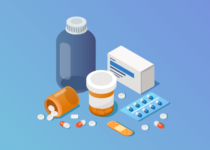Study says: COVID-19 booster vaccines will prevent people from the new BF7 variant

The fear of COVID follows us as we approach the new year 2023. Concerns have been raised in India as a result of the worldwide increase in the number of cases. At various Indian airports as of December 28, 498 international travelers had been screened. 39 of those samples have come back positive, and all have been sent for genome sequencing. The country currently has close to 3500 active cases. In a situation like this, taking care of yourself and staying protected from the virus are absolutely necessary.
Experts said that the situation probably won’t be as bad as it is in China, where some studies say that 1-2 million people could get the virus in the next few months. However, the number of cases is expected to rise in India over the next few weeks.
Ten things you need to know about the BF.7 variant BA 5217 2.
- It is a sub-lineage of the Omicron variant BA5 and highly transmissible.
- The variant is also referred to as Omicron Spawn.
- It has an R-value of 10-18, indicating that one infected individual can typically spread the virus to 10 to 18 others. The Omicron variant had R- values between 1 and 5.
- BF7 is more capable of reinfecting vaccinated individuals or infecting them because it has a shorter incubation period.
- A study found that the BF.7 variant is 44 times more resistant to neutralization than the original virus, indicating that previous antibodies are less effective at killing the BF7 infection. This suggests that the antibodies in the vaccine are not strong enough to fight the virus.
- Similar to the other Covid variants, it has the following symptoms: fatigue, a cough, a sore throat, and a fever. Additionally, gastrointestinal issues such as nausea and vomiting may occur in some individuals.
- A mutation in the spike protein (R346T) is thought to be responsible for the BF7 variant’s increased infectivity and ability to evade the immune system.
- In October, the variant of the coronavirus was first observed in India, but it is now returning. India shouldn’t be worried: Scientists and experts agreed that the BF7 variant does not pose a significant threat to the Indian population, but they also recommended avoiding crowds and wearing face masks whenever possible.
Symptoms
- fever (100.4°F or greater)
- cough with or without phlegm
- shortness of breath
- headache
- loss of smell & taste
- body aches and pain
But if you’ve been around a COVID 19 patient in the past ten days, what should you do? The following is advice from the Centers for Disease Control and Prevention:
Right away precaution:
As soon as you learn that you were in contact with a COVID-positive patient, don a mask and throw away all of your clothing.
Precautions to keep in mind when traveling Stay at home and do not travel or use public transportation like airplanes, buses, or trains because it will be difficult for you to wear a mask indoors for the entirety of your trip. Clean the surfaces you came into contact with with sanitizers. Isolate yourself from other people.
Ensure that you wear a high-quality mask or respirator whenever you travel. Because it could be harmful to others, do not remove t throughout the entire journey.
Keep an eye out for the following signs and symptoms: fever (100.4°F or higher) cough with or without phlegm shortness of breath headache loss of taste and smell body aches and pains
If you experience any of these symptoms, you should get tested right away and stay home until you know your results. With the New Year’s Eve celebration right around the corner, it is recommended that elderly people, pregnant women, and children refrain from attending parties in crowded areas.
For much such information follow Dr Bhatia Medical Coaching Institute


